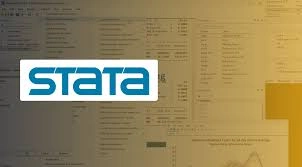Course Overview
Cost-Benefit Analysis in Monitoring & Evaluation Course is designed to provide participants with comprehensive knowledge and practical skills in applying cost-benefit analysis (CBA) within the framework of monitoring and evaluation (M&E) of projects and programs. This course emphasizes the importance of economic evaluation in decision-making processes, particularly in assessing the effectiveness, efficiency, and sustainability of development interventions. Participants will learn to identify, measure, and compare the costs and benefits of various projects, understand the trade-offs involved, and make informed recommendations to stakeholders.
Course Duration
10 Days
Who Should Attend
- Monitoring and Evaluation (M&E) Specialists
- Project Managers and Coordinators
- Economists and Financial Analysts
- Development Practitioners
- Public Policy Professionals
- Non-Governmental Organization (NGO) Staff
- Government Officials involved in Project Evaluation
- Consultants working in M&E and Economic Analysis
- Donor Agency Representatives
- Academics and Researchers in Development Studies
Course Objectives
By the end of this course, participants will be able to:
- Understand the fundamental concepts and principles of cost-benefit analysis (CBA).
- Apply CBA techniques in the context of monitoring and evaluation (M&E) to assess project performance.
- Identify and quantify the costs and benefits associated with development projects.
- Analyze the economic efficiency of projects and programs using CBA methods.
- Make informed decisions and provide recommendations based on CBA findings.
- Integrate CBA into M&E frameworks to enhance project planning and evaluation.
- Communicate CBA results effectively to stakeholders and decision-makers.
- Address challenges and limitations in conducting cost-benefit analysis.
- Explore case studies and real-world applications of CBA in various sectors.
- Develop a comprehensive CBA report for a project or program.
Course Outline:
Module 1: Introduction to Cost-Benefit Analysis
- Definition and core concepts of CBA
- The role of CBA in M&E
- Benefits and limitations of CBA
- Ethical considerations in CBA
Module 2: Economic Evaluation Methods
- Overview of economic evaluation methods (cost-effectiveness, cost-utility, cost-benefit)
- Choosing the appropriate method for different contexts
- Discounting techniques
Module 3: Identifying and Measuring Costs
- Types of costs (direct, indirect, opportunity costs)
- Cost estimation techniques
- Data collection methods for cost data
Module 4: Identifying and Measuring Benefits
- Types of benefits (tangible, intangible)
- Benefit valuation methods (market prices, contingent valuation, hedonic pricing)
- Data collection methods for benefit data
Module 5: Cost-Benefit Analysis Framework
- Steps involved in conducting a CBA
- Developing a CBA project plan
- Data management and quality control
Module 6: Sensitivity Analysis and Uncertainty
- Incorporating uncertainty into CBA
- Sensitivity analysis techniques
- Risk assessment and management
Module 7: Distributional Impacts and Equity
- Equity considerations in CBA
- Distributional analysis
- Cost-effectiveness analysis for equity
Module 8: CBA in Practice: Case Studies
- Real-world examples of CBA applications
- Best practices and lessons learned
- Challenges and opportunities in CBA
Module 9: Communicating CBA Results
- Effective presentation of CBA findings
- Tailoring communication to different audiences
- Using visualization tools
Module 10: Integrating CBA into Decision Making
- Using CBA results to inform policy and program decisions
- Cost-benefit-effectiveness trade-offs
- Monitoring and evaluation of CBA outcomes
Customized Training
This training can be tailored to your institution needs and delivered at a location of your choice upon request.
Requirements
Participants need to be proficient in English.
Training Fee
The fee covers tuition, training materials, refreshments, lunch, and study visits. Participants are responsible for their own travel, visa, insurance, and personal expenses.
Certification
A certificate from Ideal Sense & Workplace Solutions is awarded upon successful completion.
Accommodation
Accommodation can be arranged upon request. Contact via email for reservations.
Payment
Payment should be made before the training starts, with proof of payment sent to outreach@idealsense.org.
For further inquiries, please contact us on details below:






